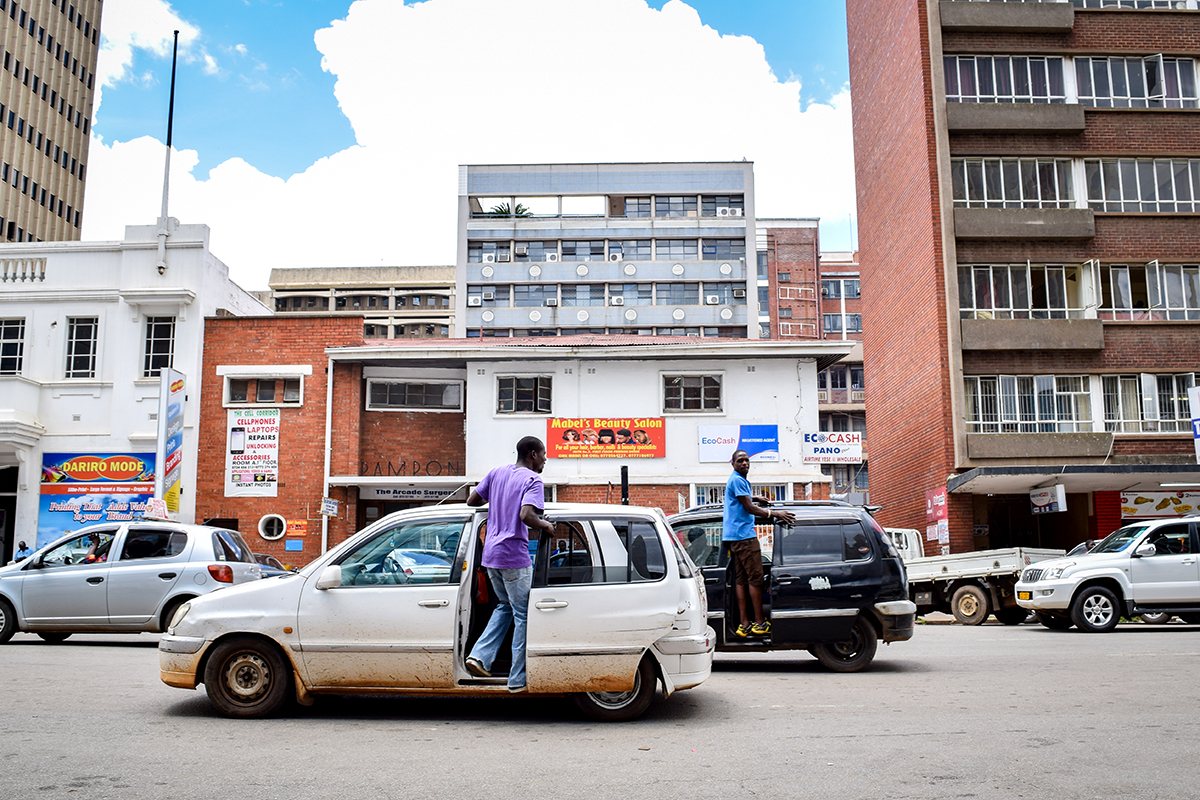IT is Wednesday evening at the corner of Chinhoyi Street and Jason Moyo Avenue in Harare and the heavens have opened up, as it suddenly starts to rain, marking the start of the winter season.
People seek refuge from shop verandas, while others brave the chilly weather and mob a commuter omnibus as they seek to hurriedly leave the central business district.
But, immediately, three police officers swoop on the motor vehicle, seeking to arrest the crew for operating illegally and picking passengers at an undesignated point.
While the driver is seemingly cooperating with the cops, there are murmurs from the passengers who are refusing to disembark.
Shouting and whistling ensue as others under the sheds join, hurling insults at the cops, accusing the law-enforcement agents of being overzealous and cruel.
As the crowd swells, the three cops disappear into the darkness while the kombi continues picking up more passengers.
For the kombi crew, this has been their daily routine of playing cat and mouse with the police, especially after authorities gave the government-owned Zimbabwe United Passenger Company (Zupco) the sole authority to ferry passengers in a bid to curb the spread of the Covid-19 virus.
But, the company has failed to provide adequate transport in urban areas and this has left commuters stranded and resorting to alternatives.
Under this confusion, there is an emerging mode of transport of pirate taxis, commonly known as mushika-shika.
Mushika-shika mainly refers to unauthorised pick up points and of late the vehicles that flood or operate from these areas.
This brand of pirate taxis is known for overloading, being un-roadworthy and breaking every rule in the traffic book.
There have been cases of people being robbed, injured after getting transport from mushika-shika and the police have warned people against using these cars.
National police spokesperson Paul Nyathi said the arrests of pirate taxis and kombis is meant to protect the public, urging people to use authorised transport.
“We will continue to arrest everyone violating the law. This is for public safety, to protect the people from Covid-19 and also from losing their belongings.
“Covid-19 does not need resistance or grandstanding because it is real and we will continue enforcing the law.
“We will name and shame the owners of the vehicles that continue to violate the law. The public who gather at these points also risk being arrested. We urge people to prioritise authorised transport,” Nyathi said.
Mushika-shika has a list of popular car brands including lorries, the Toyota Wish, Toyota Hiace, Toyota Fun Cargo and Honda Fit.
While mushika-shika has been declared illegal, it may be regarded as a necessary evil, bringing convenience to the greater commuting public.
Passengers Association of Zimbabwe Tafadzwa Goliati told the Daily News that commuters are left with no option, but to go for mushika-shika owing to failure by Zupco to satisfy public transport needs in urban areas.
He said as much as private operators are loathed by authorities, to the commuting public they are a blessing in disguise without which transport problems would mount.
“We want to thank these guys who offer…. vehicles and lorries to the public. Yes, they are unregistered, but they are helping people. Zupco buses are not enough and are not even servicing other routes saying there are bad roads.
“Zupco cannot go it alone, there has to be competition. We are past the era of monopoly and this is what the government has created, but it is not helping.
“Passengers have no choice, but to look for alternatives. We have routes that Zupco is not servicing, for example, Mbare, and private vehicles have taken advantage of the void.
“Some of the Zupco buses are clearly not roadworthy, breakdowns are high and they don’t refund passengers and people will have to wait for another bus, which obviously will take long to come. Passengers’ rights are violated, there is no respect for time,” he said.
Goliati said they are aware of the dangers posed by these unregistered vehicles and urged commuters to go for vehicles they know.
“Others are robbed, raped and injured and we urge people to go for vehicles they know ply their routes. People know their vehicles and we urge them to be on the lookout to avoid disasters,” he said.
Commuters who spoke to the Daily News last week at various mushika-shika pick up points, bemoaned the unavailabilty of adequate Zupco buses as the reason they camp at these points.
“If you get to Copacabana bus terminus by 7pm there will be no Zupco bus or kombi ….. We end up going to mushika-shika for us to get home.
“This is the same during the morning rush hours. We turn to open trucks in order to get to work, otherwise Zupco buses are not enough,” a commuter, Shingi Kwaipa said.
Another commuter added that Zupco buses mainly service busy routes and neglect other routes, leaving them to be a preserve of mushika-shika.
“If I want to get to Mbare or Machipisa, I would need two Zupco buses which is expensive and time consuming. However, mushika-shikas service those routes at a better fare,” Milton Matope said.



